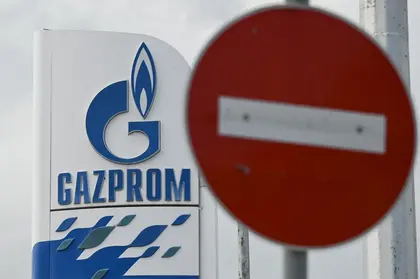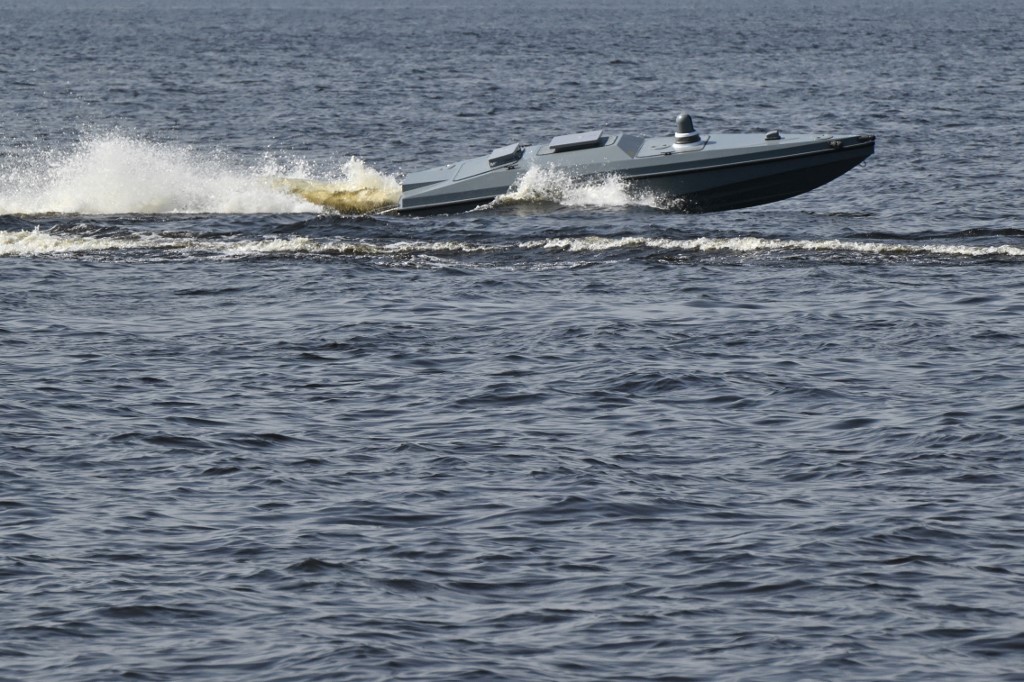New Year traditions dictate that eating the crustacean brings bad luck while pulses presage good fortune. Whether 2025 turns out to be a lobster or lentil year in Europe, will depend notably on choices made and chances taken by a trio of people in power.
Historic firsts and political surprises are the defining characteristics of our age, so it is a fool indeed who forecasts a whole year ahead. Let me invoke a bit of New Year luck, then, by jumping off a chair at midnight while eating 12 grapes in my red pants before, as we do in Scotland, accepting a lump of coal from a tall, dark stranger at my door. I’ll hedge my bets, too, by looking at both sides – whether 2025 will bring us news that tastes more of lentils (lucky, because they look like coins) or of lobster (unlucky, as it walks backwards).
JOIN US ON TELEGRAM
Follow our coverage of the war on the @Kyivpost_official.
Donald Trump
Lobster
He might not be in Europe, but what he does in the coming year will have an outsize impact on Europeans. Trump takes office for a second time as U.S. president on 20 January after a crushing election victory in November that drew groans of surprise and anxiety from many of Europe’s leaders. One campaign pledge in particular concerns them – that Trump could end the three-year-old war in Ukraine “in one day”. If that means cutting a deal on Russia’s terms, leaving Moscow with big territorial gains, European leaders would see that as rewarding aggression. It could embolden Russian President Vladimir Putin to seek further advantage over a Europe that, without U.S. help, lacks the means to resist. For not just Ukrainians, but for most Europeans, it would be like they’d feasted on a whole pot of New Year lobsters if Trump stops arming Kyiv and pushes it to accept an unjust peace.

Test Your Knowledge of Ukraine’s Biggest News Stories in 2024
Lentils
A second important policy promise from Trump has been to impose heavy tariffs – import taxes – on goods coming into the United States, including from Europe. However, as the weeks of transition in Washington have drawn on, so debate has increased over whether this may be a case of more bark than bite. The scale of Trump’s success, with his Republican allies now in control of both legislative chambers, also means the president leads a broad coalition of domestic interests, including business and economic lobbies wary of new trade wars. Those could help persuade him that bashing EU exporters, from carmakers to champagne houses, is not in America’s best interests. If so, perhaps we’ll be able to thank all those dishes of lentils consumed over the winter break.
Donald Tusk
Lobster
Another second-time-around Donald, Poland’s centre-right prime minister, Donald Tusk, is having a moment in the global spotlight after winning back power a year ago. He defeated right-wing nationalists who had dismayed European neighbours through constitutional changes that the EU saw as attempts to entrench their own power at the expense of the rule of law. Tusk’s high profile in Brussels and Washington – he led EU summitry during Trump’s first term – and Poland’s six-month turn from January 1 managing the bloc’s agenda, give the Pole an opportunity to lead Europe’s response to challenges from both Trump and Putin.
Tusk, though, is constrained at home by a right-wing head of state. He earnestly hopes his ally, Warsaw mayor Rafał Trzaskowski, wins the presidential election due in May. Opinion polls are in his favour, but the lesson of recent votes around the world is that electors are unhappy with incumbent governments and Poles could yet put an angry lobster under Tusk’s hopes of consolidating his position, domestically and on the European stage.
Lentils
Trump’s “America first” platform has not just raised questions about the future of Ukraine but about broader U.S. commitments to defending Europe. Berating Europeans for failing to meet defence spending commitments to NATO, Trump has raised the prospect of walking away from the Atlantic military alliance. Tusk is leading the charge in rallying Europeans to step up now that, as he puts it, “the era of geopolitical outsourcing is over”. He has put Poland’s money where his mouth is by ramping up its own arms budget so that Warsaw is spending 4.7% of national income on defence, more than the United States and well over double the much-ignored NATO minimum target of 2%. If Tusk can help persuade other European countries and their citizens to take more responsibility for their own security and diplomacy, then 2025 could be a good year.
Ursula von der Leyen
Lobster
The powers of the president of the European Commission, which proposes laws that apply across the 27 states of the European Union, are far from sweeping. Beginning her second term in Brussels, the German former government minister needs to persuade the national leaders who nominated her to get behind common policies that will meet expectations from voters. With climate-sceptic Trump in the White House and European business under pressure from China and elsewhere, environmental campaigners are worried that von der Leyen’s Commission will water down ambitions to lead the world to a greener future. After a 2024 marked by fatal floods in Spain and Central Europe that bore the marks of climate change, yielding to short-term temptations to scale back pressure on industry, importers, and consumers to cut carbon emissions would be bad news, for lobsters, and for people.
Lentils
Those in Brussels who adhere to the credo “never let a good crisis go to waste” think that 2025 might turn out to be a lentil-fuelled good year. They point to that same pressure on Europe from giant American and Chinese competitors, notably in the technology sector, and say it can be a catalyst for new unity.
In 2024, Mario Draghi, the former Italian prime minister and head of the European Central Bank, produced a set of remedies for a lack of European competitiveness that he said was that antidote to a “slow agony” of decline. Von der Leyen cites Draghi as a guide and the Commission is in pole position to draft plans that can help Europeans pool their strengths economically and cut out the waste and internal frontiers that sap growth. It won’t be easy. The two biggest EU economies are in disarray, with French President Emmanuel Macron struggling to govern with a fractured parliament and the nationalist hard-right set to do well in February’s German election. But if the EU can contribute to a coherence that brings economic gains, European citizens could start to look kindlier on the little loved Brussels institutions.
Lady Luck
Lobsters? Lentils? Who knows?
The Romans prayed to the goddess Fortuna and imagined her often as a blind woman ready at any moment to upset the hopes of mere humans or to hand them unexpected bounty. In Central Europe, fatalistic Yiddish speakers would proclaim “Mann tracht, un Gott lacht” – man plans, and God laughs. From catastrophic events in Gaza and the sudden evaporation of Assad’s tyranny in Syria, to a global pandemic, war in Europe, and an apparent paramilitary coup attempt in Russia, or the 11th-hour ending of Joe Biden’s re-election bid to the near-assassination of his rival Trump, we don’t have to look back far to see how the totally unexpected can upend every kind of prediction. Fact is, no one knows how 2025 will turn out. Our environment is becoming more fragile. New pandemics may be lurking. Technological and scientific advances, such as artificial intelligence, space exploration, or polyvalent new treatments like weight-loss drug Ozempic, are opening up new opportunities for humanity – both good and bad. For political leaders in Europe and for those who choose them, the best advice may be to just forget all those lobsters, lentils and other New Year superstitions, and simply be ready for anything...
See the original here.
You can also highlight the text and press Ctrl + Enter






